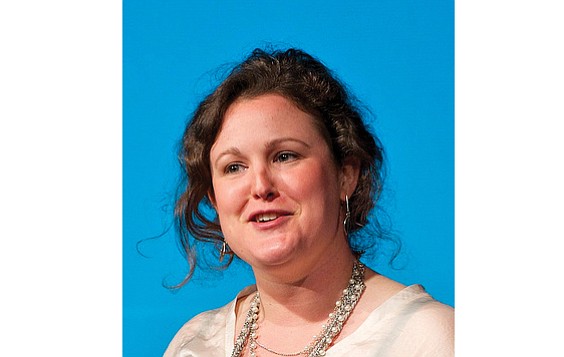Richmonder takes tech talent for transportation across country
Jeremy M. Lazarus | 2/16/2018, 2:47 p.m.
Transportation planning used to involve a lot of educated guesswork on how, when and where people drive in cities and the countryside.
Predictive models and expensive surveys were used, but the results never were considered particularly reliable.
Then along came Richmonder Laura Schewel, whose innovation is providing real-time information on driver habits to aid in the planning for bridges, street improvements, public transit and even the placement of billboards.
Her idea: Use the massive amounts of location data that cell phone companies and GPS services collect from customers to enable civil engineers to be more efficient in developing transportation infrastructure.
Ms. Schewel, 34, came up with the idea in 2009 while enrolled in a Ph.D. program at the University of California-Berkley.
Her insight, along with creating software to use the location data, has morphed into StreetLight Data, the San Francisco-based company she co-founded in 2011 and runs as chief executive officer.
With 31 employees, the company processes 60 billion location records a month to enable clients to get the information they need down to street corners.
“We’re the first and only company that provides” this kind of information for transportation uses, Ms. Schewel said in a recent phone interview.
Before her insight, she said, “There was more known about what people watched on TV than on driving habits.”
While the company’s home base is in San Francisco, Ms. Schewel just opened an East Coast office in the 804RVA co-working space at 1657 W. Broad St., just a few blocks from The Fan home where she grew up.
A major reason she chose Richmond is that one of the company’s biggest clients is based here, the Virginia Department of Transportation.
In the company’s early days, “we had to find clients who would see the vision,” she said. Virginia transportation officials were among the first to see the value of the information the company offered, she noted.
A Yale graduate with degrees in engineering and literature, Ms. Schewel learned about the data problem transportation engineers face while she was working on policies to stimulate the sale and use of electric cars at a Colorado think tank and at the Federal Energy Regulatory Commission.
Her frustration at the lack of data led her to the find the solution. Now the company’s data makes it easy for just about anyone to do what Ms. Schewel wanted — see detailed maps of driving habits. The software allows her to type in an address and find out when people drive by or stop at the location and what neighborhoods they are coming from. No individual can be tracked.
She said the data is used by a variety of companies, including companies trying to decide where to open a new medical office, an auto repair shop or a restaurant or where to place a billboard.
“We also can provide data on biking and pedestrian behavior and on transit service,” she said. “We can even help with a slight corridor improvement, such as the placement of an off ramp.
“It’s just making transportation planning better,” she said.






